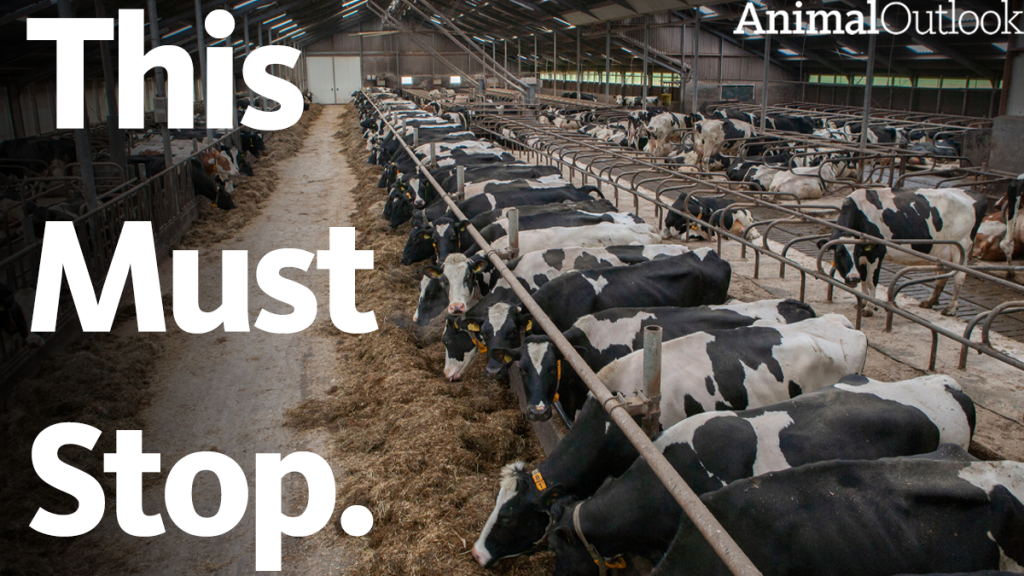Animal cruelty in factory farms is an inconvenient truth that society must confront. Behind the closed doors of these industrial operations, animals endure unimaginable suffering in the pursuit of profit. While these practices are often hidden from the public eye, it is crucial to shed light on the hidden horrors of factory farming and advocate for ethical and sustainable farming practices. This post delves into the shocking reality of animal cruelty in factory farms and explores the impact on animal welfare, the environmental consequences, and how individuals can take a stand against this injustice.

The Hidden Horrors of Factory Farms
Factory farms often operate in secret and keep their practices hidden from the public. This lack of transparency allows them to avoid scrutiny and accountability for the treatment of animals in their facilities.
The confinement and poor living conditions of animals in factory farms lead to immense suffering. Animals are typically packed into tight spaces, unable to move or engage in natural behaviors. They are often kept in unsanitary conditions, surrounded by filth and waste. This cruel environment takes a toll on their physical and psychological well-being.

The Impact of Factory Farming on Animal Welfare
Factory farming practices prioritize profit over animal well-being, resulting in compromised animal welfare. Animals in factory farms are subjected to overcrowded and unsanitary conditions, leading to physical and psychological distress.
_ Confinement: Animals are often kept in small, cramped spaces, unable to move or engage in natural behaviors. This lack of space and freedom can cause immense stress and frustration.
_Poor living conditions: Factory farms prioritize efficiency and cost-saving measures, resulting in inadequate living conditions for animals. They may be exposed to extreme temperatures, lack of natural light, and unclean environments.
_Lack of veterinary care: Animals in factory farms often do not receive proper veterinary care and do not have access to adequate medical attention when they are sick or injured.
_Mutilations: Painful and unnecessary procedures such as debeaking, tail docking, and castration are routinely performed on factory farm animals without proper pain relief.
_Nutritional deficiencies: Factory farm animals may be fed unnatural diets that do not meet their nutritional needs, leading to various health problems and suffering.
These factors contribute to the overall compromised welfare of animals in factory farms. It is crucial to address these issues and promote more humane alternatives to ensure the well-being of animals in our food production systems.
Uncovering the Truth: Animal Cruelty in Factory Farms
Investigations and undercover footage have shed light on the shocking extent of animal cruelty in factory farms. These farms, which often operate in secret and keep their practices hidden from the public, subject animals to systematic abuse. Animals in factory farms endure mutilation, neglect, and confinement.
Factory farming practices prioritize profit over animal welfare, resulting in compromised animal welfare. The overcrowded and unsanitary conditions in these farms contribute to the physical and psychological distress of the animals.
The Role of Profit in Driving Animal Cruelty
The demand for cheap meat has driven factory farming practices that prioritize profit at the expense of animal welfare. Factory farms cut corners and disregard animal welfare standards in order to maximize their profits.
Factory farms often prioritize quick growth and high production over the well-being of the animals. This leads to overcrowded and unsanitary conditions, where animals suffer physically and psychologically.
By focusing on profit, factory farms neglect to provide adequate space, proper nutrition, and healthcare to the animals. They prioritize efficiency and cost-effectiveness, leading to harsh practices like overcrowding, confinement, and inhumane treatment.
Animals in factory farms are seen as commodities rather than sentient beings. They are often subjected to cruel practices such as mutilation, neglect, and confinement, all in the name of maximizing profit.
It is crucial to recognize the role of profit in driving animal cruelty in factory farms. By supporting ethical and sustainable farming practices and demanding transparency in the industry, we can help combat these cruel practices and prioritize animal welfare.
The Environmental Consequences of Factory Farming
Factory farming has significant environmental consequences that contribute to the degradation of our planet.
Water Pollution:
Factory farms generate an enormous amount of waste, including manure and chemical runoff, which often ends up in our water systems. This waste contaminates rivers, lakes, and other bodies of water, leading to water pollution. The pollution can harm aquatic life and degrade ecosystems.
Air Pollution:
Factory farms emit large quantities of harmful gases, such as ammonia and methane, into the atmosphere. These gases contribute to air pollution and can have detrimental effects on human health. Additionally, the release of ammonia can cause respiratory issues for workers and neighboring communities.
Deforestation:
The expansion of factory farms often requires clearing vast amounts of land, leading to deforestation. Trees and natural habitats are destroyed to make room for animal housing, feed production, and infrastructure. Deforestation contributes to the loss of biodiversity and accelerates climate change.
Antibiotic Resistance:
Factory farms rely heavily on the routine use of antibiotics to prevent and treat diseases in overcrowded and unsanitary conditions. This excessive use of antibiotics contributes to the growing problem of antibiotic resistance, making it more difficult to treat bacterial infections in both animals and humans.el to animals but also detrimental to the environment. By adopting ethical and sustainable farming practices, we can ensure the well-being of animals and protect our planet.
A Call for Ethical and Sustainable Farming Practices
It is essential to transition to ethical and sustainable farming practices that prioritize animal welfare and environmental sustainability. Factory farming is not only cruel to animals but also detrimental to the environment. By adopting ethical and sustainable farming practices, we can ensure the well-being of animals and protect our planet.
Supporting Local Farmers and Sustainable Agriculture
One way to make a difference is by supporting local farmers and sustainable agriculture. By purchasing locally sourced and organic products, we can reduce the demand for factory farm products and promote sustainable farming practices. This supports local economies and ensures that animals are raised in more humane conditions.
Advocating for Stricter Regulations
Another crucial step is advocating for stricter regulations on factory farms. By demanding higher animal welfare standards and transparent practices, we can hold factory farms accountable for their actions. Writing to legislators, signing petitions, and supporting animal welfare organizations are effective ways to bring about change in the industry.
Being Mindful of Our Food Choices

Individual choices also play a significant role in combating animal cruelty in factory farms. Choosing plant-based alternatives or reducing meat consumption can help decrease the demand for factory farm products. By opting for compassionate and sustainable food options, we contribute to a more humane and environmentally friendly food system.
Creating Awareness and Taking Action
Lastly, creating awareness about the realities of factory farming and its impact on animals and the environment is crucial. By sharing information, engaging in discussions, and educating others, we can inspire more people to take action against animal cruelty in factory farms. Together, we can make a difference and strive towards a more compassionate and sustainable future.
Promoting Transparency: Bringing Animal Cruelty to Light
Advocacy groups are working tirelessly to expose the hidden cruelty in factory farms and push for more transparency in the industry. By bringing attention to the disturbing practices and conditions inside these facilities, these organizations hope to inspire change and promote ethical farming practices.
Consumers also play a vital role in promoting transparency. By actively seeking information about where their food comes from and how it is produced, they can make informed choices and support companies that prioritize animal welfare and transparency.
It is important to demand transparency from factory farms, holding them accountable for their practices. Consumers can ask questions, seek out certifications or labels that guarantee ethical standards, and support campaigns and initiatives that aim to expose and change the cruel practices found in these farms.
Together, we can create a movement that advocates for the well-being of animals and promotes transparency in the food industry. By supporting ethical farming practices and demanding transparency, we can bring animal cruelty to light and work towards a more compassionate and sustainable future.
Taking a Stand: How You Can Help Combat Animal Cruelty in Factory Farms
Combatting animal cruelty in factory farms requires collective action and individual choices. Here are some ways you can make a difference:

1. Choose Plant-Based Alternatives
Reducing your consumption of meat and opting for plant-based alternatives can directly decrease the demand for factory farm products. Incorporate more fruits, vegetables, legumes, and grains into your diet.
2. Support Animal Welfare Organizations
Donate to and volunteer with animal welfare organizations that work towards improving the lives of animals in factory farms. These organizations often lobby for stricter regulations and advocate for animal rights.
3. Advocate for Stricter Regulations
Get involved in advocacy efforts to push for stronger regulations that protect the welfare of animals in factory farms. Write to your local representatives, sign petitions, and participate in protests or marches supporting animal rights.
4. Educate Others
Spread awareness about the realities of factory farming and the animal cruelty it perpetuates. Share informative articles, documentaries, and videos on social media. Engage in conversations with friends, family, and coworkers to encourage them to make more conscious choices.
Conclusion
Animal cruelty in factory farms is an inconvenient truth that we can no longer ignore. The hidden horrors of these farms, from confinement to poor living conditions, result in immense suffering for the animals. The impact on animal welfare is undeniable, with factory farming practices prioritizing profit over the well-being of these sentient beings. Investigations and undercover footage have exposed the shocking extent of animal cruelty in these farms, including mutilation, neglect, and confinement. It is clear that the pursuit of profit drives these cruel practices, as the demand for cheap meat leads to corners being cut and animal welfare standards disregarded.
The environmental consequences of factory farming are not to be overlooked either. Water pollution, air pollution, and deforestation are just some of the effects of this industry, contributing to environmental degradation. Additionally, the excessive use of antibiotics in factory farming further exacerbates the issue of antibiotic resistance.
However, there is hope. It is crucial that we transition to ethical and sustainable farming practices that prioritize animal welfare and environmental sustainability. Supporting local farmers and sustainable agriculture can help reduce the demand for factory farm products. Advocacy groups are already working hard to expose cruelty in factory farms and promote transparency within the industry. As consumers, we have the power to demand change and hold these farms accountable for their practices.
We can all make a difference in combating animal cruelty in factory farms. By choosing plant-based alternatives or reducing our meat consumption, we can decrease the demand for these products. Supporting animal welfare organizations and advocating for stricter regulations will also contribute to addressing this pressing issue. Together, we can create a world where animals are treated with compassion and respect, free from the cruelty of factory farming.
4.6/5 - (13 votes)



